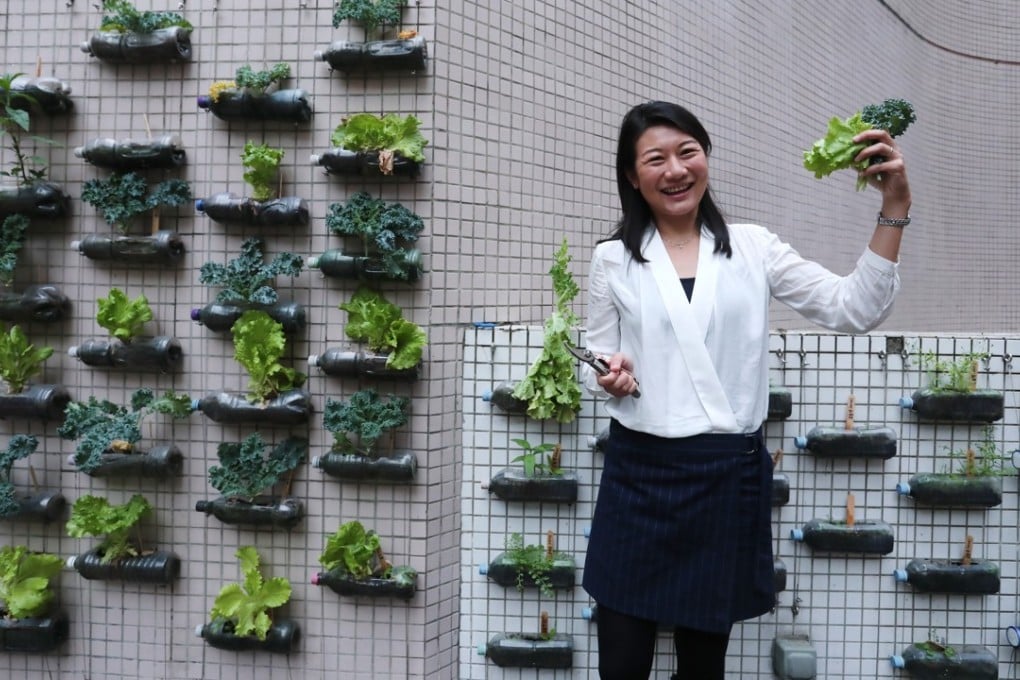Six Hong Kong zero-waste champions – women campaigning to make the city greener
Eco-friendly pioneers leading the way on how to reduce individual waste and send less to landfill

“Let me show you our garden,” Dr Daisy Tam Dic-sze says, brandishing a pair of shears and beckoning as she leads the way to a wall of kale and lettuce sprouting through holes cut into plastic bottles. Over the past year, Tam has transformed a small corner of Hong Kong Baptist University’s Kowloon Tong campus, where she works, into a verdant vertical allotment, the green frills bright against the faculty’s grey tiled facade, even on a dreary day.
“It’s an experiment I did with students to teach them about turning waste into a resource and to see what was the smallest scale of urban farming we could do,” she explains, snipping off some emerald stalks to take home for dinner.
Hers is one modest scheme in a burgeoning movement towards reducing waste to a practical minimum. In Hong Kong, as elsewhere, more and more researchers, entrepreneurs, campaigners, bloggers and others are becoming aware of the enormous damage being done to the planet by our excessive wastefulness. Tired of waiting for governments and industry to take the lead, they are taking the initiative.
One small vegetable-growing scheme might not change the world, but Tam and other like-minded Hongkongers hope such initiatives will set in motion a “zero-waste” snowball.
To affect change, you need a catchy, quick solution and someone to make it trendy, then you need to go beyond that, so it’s not just a luxury offered to the middle classes [...] It’s about designing a city with sustainability in mind
Tam specialises in food security and ethical food practices in Hong Kong, where leftovers constitute the largest category of waste by far. Trying to understand why excess food often becomes classified as waste, she works with redistribution NGOs to imagine the infrastructure needed to keep food out of landfills and how green practices might become feasible for everyone in the city – not just the middle class.